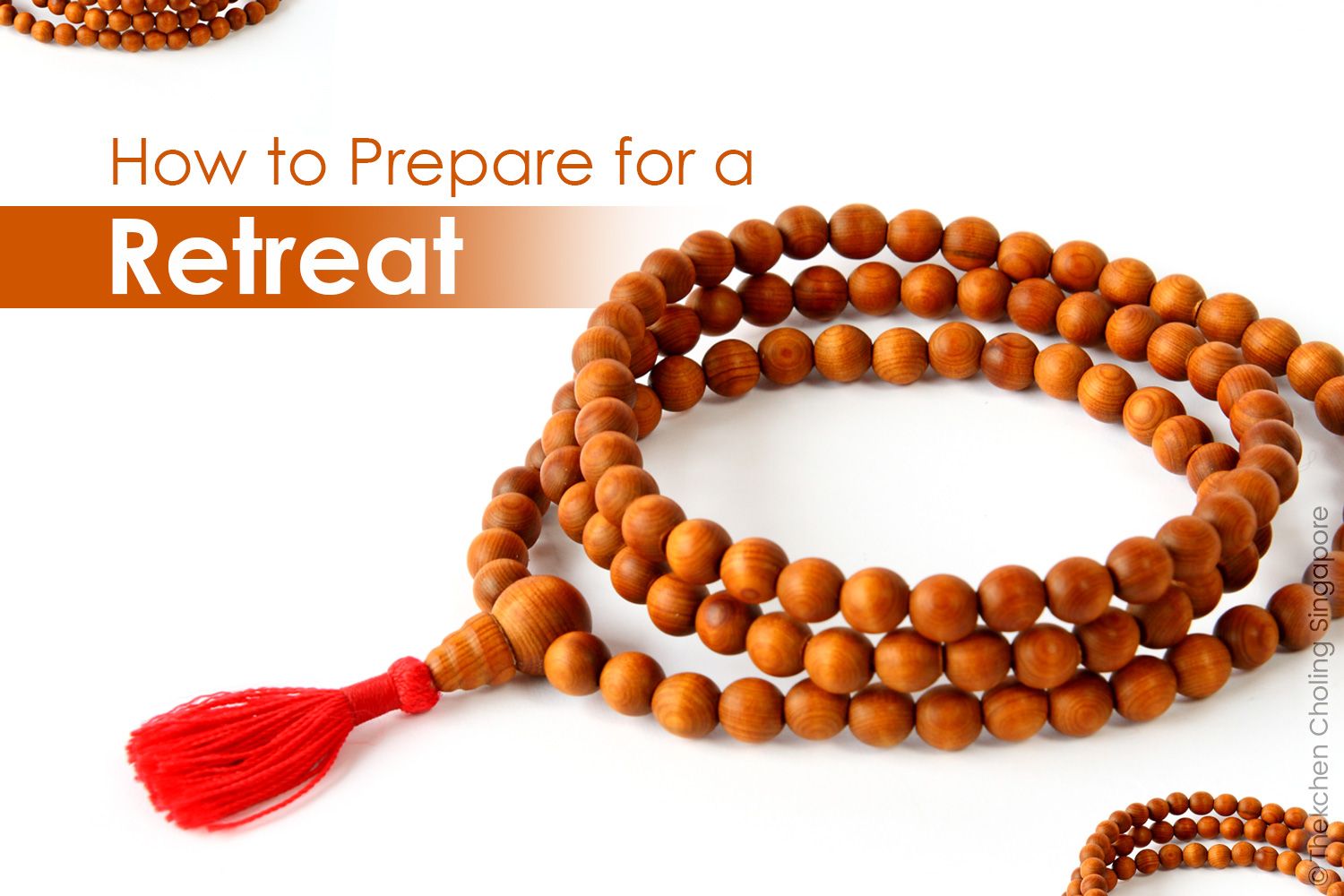How to Prepare for a Retreat

Have you ever wondered what it takes to prepare for a Buddhist retreat?
More than just a change of scenery or a break from routine, a retreat is a profound opportunity to meet yourself deeply and cultivate a calm, clear mind free from distraction. Yet before stepping into silence and solitude, it’s essential to prepare—not just logistically, but mentally and spiritually.
Drawing from the teachings of Lama Zopa Rinpoche and Pabongkha Dechen Nyingpo in Heart Advice for Retreat, this article outlines why retreat matters and how to prepare your mind and motivation in a way that ensures deep inner transformation.
Why Do a Retreat?
Retreat isn’t just about removing yourself from daily distractions. It is a sacred pause to reset your heart and mind in alignment with the Dharma. Lama Zopa Rinpoche offers three core reasons to engage in retreat:
1. Developing Loving-Kindness and Human Affection
Retreat allows us to cultivate fundamental human qualities such as affection and compassion. Lama Zopa reminds us that unless we generate love and kindness toward others, we will not receive the affection that is so essential to our own happiness. When we open our hearts to others, we become capable of creating the very conditions that foster peace and joy in our lives.
2. Integrating the Teachings into Daily Life
Many of us receive Dharma teachings from qualified teachers and lamas. But listening alone is not enough. Retreat provides a precious opportunity to put those teachings into direct practice. Free from the distractions of daily life—our obligations, sensory pleasures, and mental busyness—we finally find the quiet space needed to look inward and truly absorb the Dharma.
It’s during these moments of solitude that we meet ourselves more honestly and begin to uncover deeper layers of our consciousness.
3. Building Inner Strength and Clarity
As the mind settles, it becomes like a crystal-clear lake—calm, transparent, and reflective. In this stillness, we can begin to perceive our Buddha nature more clearly and gain resilience for this life. A healthy, stable mind leads to a healthier body and a more joyful existence.
Lama Zopa Rinpoche beautifully puts it:
“Without retreat, without being alone, the mind is like muddy water.
But the mind in retreat, being alone and free of outside distractions,
is like a calm, crystal-clear lake. There is the clarity to help see
oneself more clearly and to see one’s own buddha nature more easily”.
Preparing the Mind: Motivation
The success of a retreat depends largely on your mental attitude before it even begins.
A Noble Motivation
The right motivation is not simply to find personal peace or spiritual attainment. Rather, it is to benefit all sentient beings. As Rinpoche teaches:
“The purpose of my life is not just to be free from samsara myself, but to free all sentient beings from suffering and bring them to enlightenment… Every single hell being, hungry ghost, animal, human, sura, and asura is the most precious, most kind being in my life.”
With this vast altruistic vision, retreat becomes a means to fulfill our responsibility toward all living beings, honoring their kindness and dedicating our efforts to their awakening.
Letting Go of the Eight Worldly Dharmas
Before retreat, it is crucial to turn the mind away from the eight worldly concerns—praise and blame, gain and loss, pleasure and pain, fame and disgrace. Clinging to these can sabotage your retreat from within.
When we enter retreat with worldly motivations—hoping to “achieve something,” or escape discomfort—we open the door to mental turbulence. This often manifests as “loong” — a Tibetan term for an inner wind imbalance linked to stress and agitation.
Rinpoche explains that loong often arises when expectations collide with reality. When you want peace but are disturbed by someone’s cough, or when you’re clinging to success in mantra recitations, your mind rebels. You may feel imprisoned, not by walls, but by your own thoughts.
“Even though the police did not put you in prison, your mind has created a prison.”
To counter this, we must root out these eight worldly concerns before we step into our retreat space. Only then can the mind rest and settle.
Practices to Prepare the Mind
To remove these inner obstacles, begin with foundational meditations:
1. Precious Human Rebirth
Reflect on how rare and valuable this human life is. We have the physical freedom, intelligence, and opportunity to practice the Dharma. Contemplating this can generate great enthusiasm for using every moment meaningfully. Read up on the eight freedoms and ten richnesses of this human rebirth to have a greater understanding of this.
2. Death and Impermanence
A powerful way to strip away trivial concerns is to meditate on the certainty and unpredictability of death. Rinpoche advises us not to repeat the words like a mantra while still believing we have plenty of time left.
“Completely decide that it is definitely going to happen today.”
This helps shake the mind out of its usual complacency and re-orients our values toward what truly matters.
Great yogis such as Thogme Zangpo and Kara Gomchen went so far as to hang signs outside their retreat dwellings saying, “If I follow the eight worldly dharmas or self-cherishing thought, please destroy me immediately.” That’s how seriously they took the vow to prepare the mind before deep practice.
Guarding the Mind in Retreat Space
When the retreat begins, set a powerful intention for your environment:
“As long as I am in this room, I shall not allow the eight worldly dharmas, self-cherishing thought, or wrong views to enter. These thoughts cannot come into this space.”

